I might have to buy this record
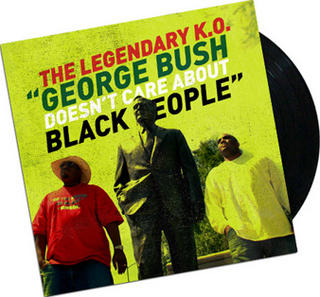
The Legendary K.O. has sampled Kanye West's infamous claim that George Bush doesn't care about black people and made a bomb track, or so I hear.
Check it out.
politics is to want something

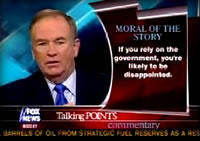 ...is how small Grover Norquist once said he'd like to make the federal government. Now, Republicans in Congress are proposing to completely zero out funding for public television, graduate student loans and other Amtrak, and other unnecessary frivolties in order to pay for reconstruction of Katrina-ravaged areas. It's amazing to watch them use a catastrophe brought about by underfunding government projects in order to cut more government projects. George Orwell would be proud. MoveOn is on it.
...is how small Grover Norquist once said he'd like to make the federal government. Now, Republicans in Congress are proposing to completely zero out funding for public television, graduate student loans and other Amtrak, and other unnecessary frivolties in order to pay for reconstruction of Katrina-ravaged areas. It's amazing to watch them use a catastrophe brought about by underfunding government projects in order to cut more government projects. George Orwell would be proud. MoveOn is on it.
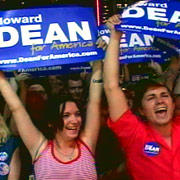 A recent post by Peter Frase on his well-written blog raises the question of what, if any, sustained political action will come out of the energy and excitement around the 2004 election. Besides being the overall topic of my Master’s Thesis, this is a question of tremendous importance and a topic of much hand-wringing.
A recent post by Peter Frase on his well-written blog raises the question of what, if any, sustained political action will come out of the energy and excitement around the 2004 election. Besides being the overall topic of my Master’s Thesis, this is a question of tremendous importance and a topic of much hand-wringing. There has certainly been an explosion of new organizations and formations since the Howard Dean campaign swept young people, microserfs, and previously apolitical middle class folks up into a tizzy. This is in addition to the proliferation of lefty blogs and online fora that this website is, in some respects a part of. I was (and am) a Dean supporter, so I mean no disrespect here.
Nonetheless, as Peter notes in his post, it is not clear that there is any there, there, when it comes to the new “movement”. If an organizational model is emerging, it seems to be based on loose, affiliative networks such as Democracy for
There are three basic ways to assess the efficacy of these organizations, keeping in mind that in many respects it is too early get a good read on anything. In no particular order, they are: impact on elections, impact on the Democratic Party and, finally, their ability to help build a progressive majority in American politics.
The first test of this New Model Army was the ’04 Presidential election. It’s difficult to assess what the overall impact was of MoveOn and it’s coterie. Many say that their ads and public statements scared middle-of-the-roaders into supporting Bush. I’m not so sure. I think it is safe to say that a lot more precincts got walked because of their efforts than otherwise would have. They were crucial feeders into labor-run, pavement-pounding efforts like America Coming Together. One could take a bare-knuckles approach and say simply that, in the end, the election was lost. This would be simplistic, however. The Democratic Party’s uncanny ability to snatch defeat from the jaws of victory cannot be underestimated.
Furthermore, many generations of insurgent activists have rebounded from defeat and had a lasting impact on American politics. The young volunteers who worked for Adlai Steveson in 1956 went on to transform Democratic politics in
This brings us to the other two potential contributions of “Deanism”, their ability to transform the party, and to shift political trends to the left. It is here that their strategic choices will be put to the test. Unlike other historical insurgencies within and around the Democratic Party, there doesn’t seem to be a concerted effort to “take over” or directly control the organs of the Party per se. This may be a smart strategy given the fact the structural and cultural changes that have all-but eliminated Democratic party organization. It may be that there is no party left to take over. On the other hand, conservative activists have certainly done a good job of transforming the Republican Party in their own image. They have effectively eliminated their left wing, with only a small rump of liberal Republican Senators left, and left cowering. Howard Dean’s election as DNC chair was certainly a major victory, but as with all elections, putting the right man (or woman) in place is not enough. Without pressure from below, Howard will have to listen to other benefactors- donors, electeds and consultants. Dean himself has been begging his onetime followers to follow him into the party at the grassroots level. So far, his own organization, Democracy For America, has not been facilitating such a strategy. If they are not going to take over the party, then, the strategic choices made by their new, “outside” organizations are crucial. Nearly all of them are gripped by some level of schizophrenia about their relationship to the party and to electoral politics.
I agree with Peter, as well as other readers and commenters on hoverbike, that we should not abandon the tradition and strategy of deep organizing. Nor should we assume that a couple of smart, media-savvy middle-class technicians at MoveOn HQ in
In a sense, this conundrum is not so different than that faced by the anti-globalization movements.
Again, it is too early to tell for sure what will come of all of this. However, it is also too early to readily dismiss the new activism. Sophisticated electoral operations like the ones promoted by Progressive Majority are racking up successes. Organizations which primarily do community-electoral organizing are utilizing some of the tactical innovations of the new-economy based political work. Case and point is SF’s Power Pac. I, too, miss the deep organizing and ideologically-grounded organizational homes I used to have. We must admit, however, that these models are not fairing well themselves, from declining membership in Swedish Social Democracy to the almost complete disintegration of Peter and my alma mater, DSA.
I, for one, am hoping (and working) for momentum, and not just a moment.
A link replicated from Peter's Blog worth passing on: Geoff Kurtz on two books from the new political order.

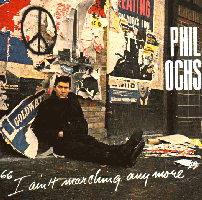


"Seven-in-ten blacks (71%) say the disaster shows that racial inequality remains a major problem in the country; a majority of whites (56%) say this was not a particularly important lesson of the disaster. More striking, there is widespread agreement among blacks that the government's response to the crisis would have been faster if most of the storm's victims had been white; fully two-thirds of African Americans express that view. Whites, by an even wider margin (77%-17%), feel this would not have made a difference in the government's response.”
White denial cuts across the political spectrum. From conservative spin, which started as soon as the levies broke, that state and local authorities share the blame for the disaster, to “liberal” arguments that class, not race is the key to understanding Katrina’s deadly effects, the white chattering classes have been resistant to accepting the obvious: race profoundly determines our chances of survival in post-New Deal
It is impossible to extricate race and racism from any honest discussion of Katrina. Race and poverty are clearly correlated- it’s not a random coincidence that black people are poor and live in harm’s way, nor that they are unlikely to be able to relocate easily. More acutely, the swift removal of tourists and the energy and attention given to protecting property while people suffered under the dual threat of natural disaster and human chaos speaks to a bias on the part of the authorities. Quite simply, where were the buses?
This is not to say that class and economic status are irrelevant. Rich whites enjoy privileges that poor whites do not, and class disadvantage is not savage and real for poor and working-class white people. No doubt, had this disaster struck rich white folks, there would have been better response (as well as increased means of self-preservation) than if most of the victims were poor and white. However, the victims were majority black, and they are both poor and underserved because they are black.
No doubt some of white
What is clear is that whites and people of color live in completely different counties, with completely different perceptions of reality.
 From the United Farm Workers:
From the United Farm Workers:



The perhaps inevitable collapse of the fracturous Norwegian right is cause for celebration. The previous government, led by the Christian Democrats, included the free-market-obsessed Conservatives and a small liberal party. It was dependent on support from a large, populist far-right party, paradoxically known as the “Progress Party”. Mixing subtle xenophobia with anti-tax, anti-regulation and pro-welfare rhetoric, the Progress Party has created a dangerous, and successful populist space which has eroded traditional Labour support.
It is nice to follow politics in a country where “solidarity” is an election slogan, and right-wing policies are derided because they are “anti-social”. Politics across the world has been pushed to the right by the Reagan-Thatcher revolution, but in the Nordic countries, there persists a strong and vibrant left streak in mainstream political life.
Congratulations to my friends in the Norwegian labor movement, special congrats to all my old drinkin’ buddies who made it (and those who didn’t make it :) ) into parliament. Your victory just goes to prove what I have always suspected- if you want to win an election, make sure I am nowhere near your country.

Observer
It takes something as big as Hurricane Katrina and the misery we saw among the poor black people of
What we saw unfold in the days after the hurricane was the most naked manifestation of conservative social policy towards the poor, where the message for decades has been: 'You are on your own'. Well, they really were on their own for five days in that Superdome, and it was Darwinism in action - the survival of the fittest. People said: 'It looks like something out of the
It's not just Katrina, it's povertina. People were quick to call them refugees because they looked as if they were from another country. They are. Exiles in
In the end George Bush has to take responsibility. When [the rapper] Kanye West said the President does not care about black people, he was right, although the effects of his policies are different from what goes on in his soul. You have to distinguish between a racist intent and the racist consequences of his policies. Bush is still a 'frat boy', making jokes and trying to please everyone while the Neanderthals behind him push him more to the right.
Poverty has increased for the last four or five years. A million more Americans became poor last year, even as the super-wealthy became much richer. So where is the trickle-down, the equality of opportunity? Healthcare and education and the social safety net being ripped away - and that flawed structure was nowhere more evident than in a place such as New Orleans, 68 per cent black. The average adult income in some parishes of the city is under $8,000 (£4,350) a year. The average national income is $33,000, though for African-Americans it is about $24,000. It has one of the highest city murder rates in the
Charlie Parker would have killed somebody if he had not blown his horn. The history of black people in
This kind of dignity in your struggle cuts both ways, though, because it does not mobilise a collective uprising against the elites. That was the Black Panther movement. You probably need both. There would have been no Panthers without jazz. If I had been of Martin Luther King's generation I would never have gone to Harvard or
They shot brother Martin dead like a dog in 1968 when the mobilisation of the black poor was just getting started. At least one of his surviving legacies was the quadrupling in the size of the black middle class. But Oprah [Winfrey] the billionaire and the black judges and chief executives and movie stars do not mean equality, or even equality of opportunity yet. Black faces in high places does not mean racism is over. Condoleezza Rice has sold her soul.
Now the black bourgeoisie have an even heavier obligation to fight for the 33 per cent of black children living in poverty - and to alleviate the spiritual crisis of hopelessness among young black men.
Bush talks about God, but he has forgotten the point of prophetic Christianity is compassion and justice for those who have least. Hip-hop has the anger that comes out of post-industrial, free-market
There is the danger of nihilism and in the Superdome around the fourth day, there it was - husbands held at gunpoint while their wives were raped, someone stomped to death, people throwing themselves off the mezzanine floor, dozens of bodies.
It was a war of all against all - 'you're on your own' - in the centre of the American empire. But now that the aid is pouring in, vital as it is, do not confuse charity with justice. I'm not asking for a revolution, I am asking for reform. A Marshall Plan for the South could be the first step.
While Bush parties and the right spins on about corruption and protecting property, a major humanitarian disaster unfolds in Louisiana. More later...
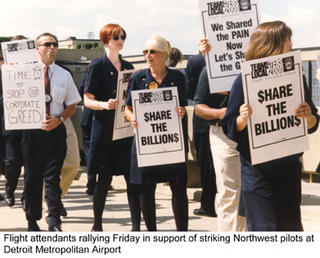
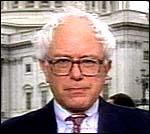 Anyone who knows me is painfully aware that I am a staunch Democrat. I have been a registered Democratic voter since I turned 18, and though I flinched and almost didn’t vote for
Anyone who knows me is painfully aware that I am a staunch Democrat. I have been a registered Democratic voter since I turned 18, and though I flinched and almost didn’t vote for So, it is with those hard-nosed and stubborn bona-fides that I confess my elation at the prospect of an independent
Bernie Sanders has great politics, and he’s gonna win. The Democrats in
Perhaps the most salacious thing about Sanders’ political success and the reason his campaign is being watched closely by my friends in the Social Democratic left in
“On a recent Sunday, Tim Russert of NBC’s Meet the Press needled Democratic Party leader Howard Dean over Sanders' run. “He is a self-described, avowed socialist,” Russert said to Dean, using the word in its popular beltway parlance, as if it were a bomb about to go off. “Is there room in the Democratic Party for a Socialist?” “He’s not a socialist, really,” Dean answered.”
I’m not sure how effective flat denial is really going to be. It’s a conundrum for the Democrats and the left in general- the Right has destroyed our vocabulary so thurroughly that it is difficult to develop a strategy for self-presentation when any word which may clarify our position can be used as a weapon against us (more on this theme later). For this reason, the Sanders campaign will be an crucial race to watch for hoverbike, and anyone interested in expanding the scope of the “possible” in American politics.
So, why do I make this exception to my usual rabid partisanship? Three simple reasons: First, Bernie is not trying to build a third party which will compete with and split the base of the Dems. Second, Sanders is working closely with Democrats both on the ground and in
Let me be clear here: Sanders’ plain-spoken anti-corporatism, patriotic populism, critique of budget priorities and opposition to unfettered trade are all fantastic and important. He is both inspiring and instructive in his rejection of poll-based Clintonian triangulation. However, the way in which he does it, and the fact that he does it alone, rejecting the Democratic Party or any other organizational base, is a feature of the micropolitics of
Sanders is very much a creature of
I do not mean to sound like those who say that Scandinavian social democracy is wholly irrelevant to the
A recent Nation cover-story by the often pollyanna-ish John Nichols misses some of these nuances in its excitement about Sanders’ imminent victory. Though Nichols includes the critique that Sanders, like Jesse Jackson and other insurgents have failed to build something sturdy enough to outlast their own careers, he is a bit too quick to draw lessons from Sanders’ successes. He quotes one supporter:
"Some people are uncomfortable when they see a yard where there are signs for the Republicans and for Bernie, but I see that as evidence that he has figured out how to talk to people that the Democrats just have not been able to reach."
It’s certainly true that the Democrats will only be able to reach voters lost to the right by being solid and clear-spoken on economic issues. These bread and butter questions of jobs, health-care and education have been Sanders’ stock-in-trade for his whole career. However, there is something to the fact that these folks will post Bernie signs and Bush signs in their yard. I’m not worried that Bernie is insufficiently progressive, but rather that while people like Bernie, Bush and his crowd are still also speaking to them on some level. It’s no secret that Republican economic policies are not supported by a majority of Americans, and Democrats are suicidally inept on tapping into their dissatisfaction. However, the idea that we will win people back simply by appealing to their pocketbooks is naive. We have to cut down the salience of the right’s flagship wedge issues- race, religion, sex and security.
So, god bless